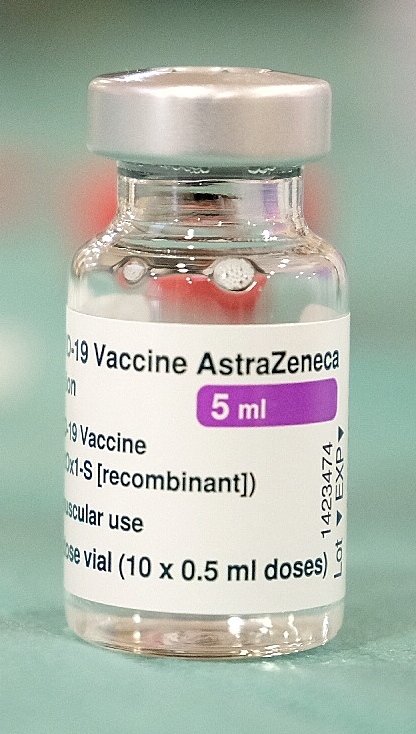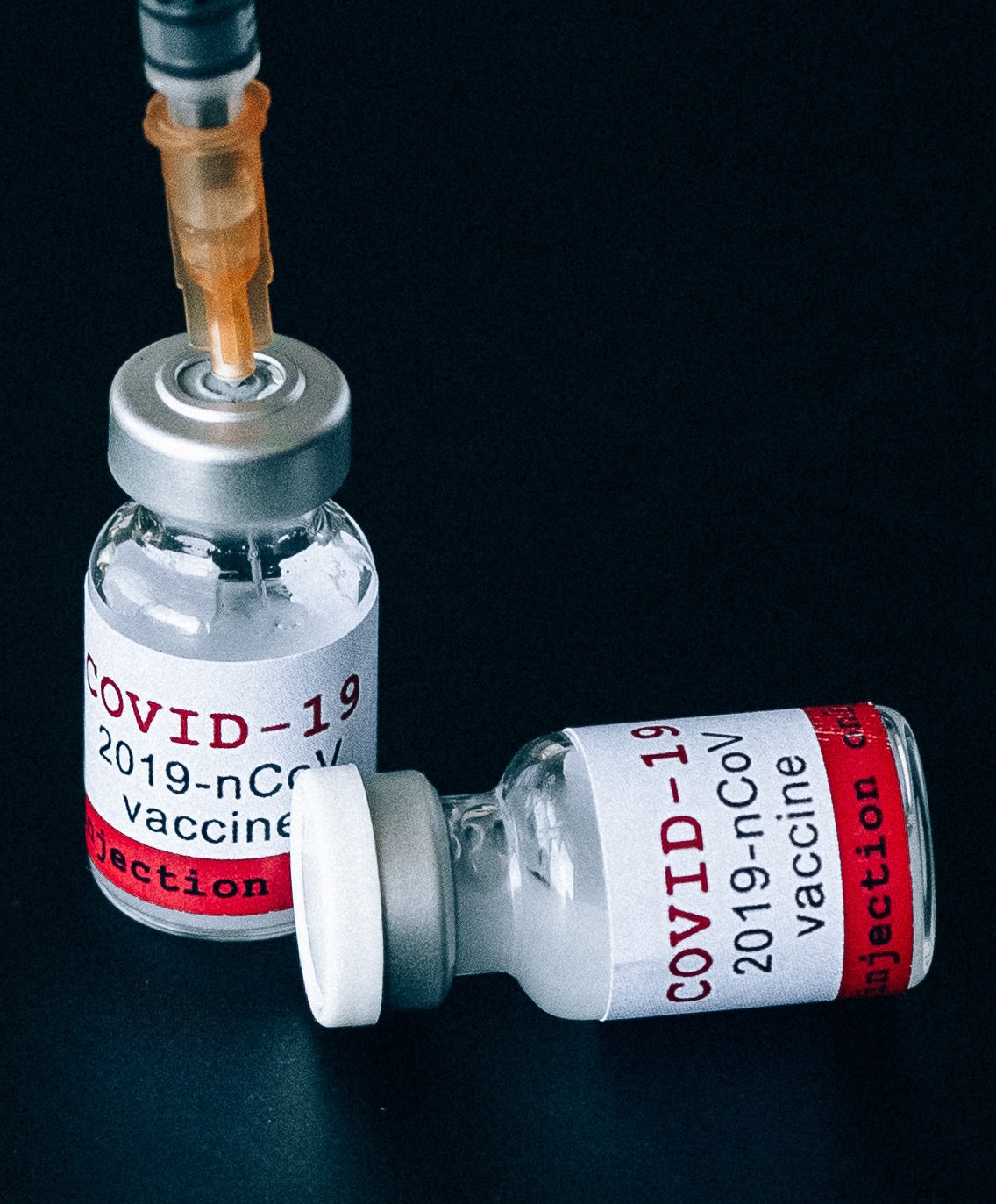Vaccine Safety
COVID-19 Vaccine Safety Risk
The health agencies approved COVID-19 vaccines under emergency use authorization by reviewing the data (safety and protective efficacy) from clinical trials. However, we have encountered unexpected adverse events with certain vaccines since the vaccine rollout. The GVN is updating current status of using these vaccines.
 A rare blood clot with low blood platelets (thrombosis and thrombocytopenia) in the recipients has been a major safety concern with AstraZeneca vaccine, particularly, in Europe, where the AstraZeneca vaccine is widely used.
A rare blood clot with low blood platelets (thrombosis and thrombocytopenia) in the recipients has been a major safety concern with AstraZeneca vaccine, particularly, in Europe, where the AstraZeneca vaccine is widely used.- The clotting incident has been reported at an extremely rare rate (about one in 100,000 recipients).
- Germany has reported cerebral venous thrombosis (CVT), an unusual type of stroke that is characteristic of thrombosis with thrombocytopenia syndrome, in roughly one in 76,000 recipients of the vaccine. The rate was higher in Norway and Denmark, where roughly one in every 40,000 AstraZeneca vaccine recipients developed CVT, with the frequency of other clotting events possibly even higher.
- Vaccinated people and health-care providers should be aware of blood-clot symptoms, such as shortness of breath, chest pain, leg swelling and persistent abdominal pain, to ensure prompt treatment.
- Recent studies identified specific antibodies to platelet factor 4 that led to clots in the patients.
- The European Medicines Agency (EMA) has concluded that the Oxford–AstraZeneca COVID-19 vaccine should carry a warning that blood clots, accompanied by low levels of blood platelets, are very rare side effects of the vaccine.
- EMA along with the World Health Organization (WHO) and the Medicines and Healthcare Products Regulatory Agency (UK) have stated that the benefits of vaccine still greatly outweighed the risks.
- Currently, Germany, the Netherlands, the Philippines, Portugal and Spain have recommended vaccination of this vaccine only to people over 60. Canada and France have limited it to those over 55; Australia, over 50; Belgium, over 56. Regulators in France and Germany have recommended that people under 55 who have had one dose get a different vaccine for their second shot. Britain would begin offering alternative shots to people under 30.
- Norway and Denmark have recommended against using the vaccine at all for now.
Weighing risks and benefits of Oxford-AstraZeneca vaccine
The benefits of the AstraZeneca COVID-19 vaccine—in hospitalizations and deaths prevented—far outweigh the risks of a rare clotting disorder for most age groups (All data are per 100,000 people vaccinated).
High infection rate
| Age | Hospitalizations prevented | Deaths prevented | Cases of blood clots with low platelets |
| 20–29 | 64 | 0 | 1.9 |
| 30–39 | 81 | 3 | 1.8 |
| 40–49 | 122 | 10 | 2.1 |
| 50–59 | 208 | 14 | 1.1 |
| 60–69 | 324 | 45 | 1 |
| 70–79 | 547 | 172 | 0.5 |
| 80+ | 1239 | 733 | 0.8 |
Low Infection Rate
| Age | Hospitalizations prevented | Deaths prevented | Cases of blood clots with low platelets |
| 20–29 |
4 |
0 | 1.9 |
| 30–39 | 5 | 0 | 1.8 |
| 40–49 | 6 | 1 | 2.1 |
| 50–59 | 10 |
1 |
1.1 |
| 60–69 | 19 | 3 | 1 |
| 70–79 | 45 | 14 | 0.5 |
| 80+ | 151 | 90 | 0.8 |
Citation:
What’s the future of vaccines linked to rare clotting disorders? Science breaks down the latest
Science Magazine, May 3, 2021

Rare Blood Clot Disorder
- Six recipients among seven million recipients in the United States developed an extremely rare disorder involving blood clots in the brain within about two weeks of vaccination.
- All six recipients were women between the ages of 18 and 48. One woman died, and a second woman in Nebraska has been hospitalized in critical condition.
- Scientific questions remain about what component of the vaccines might be triggering the reaction, and who is at risk. But the syndrome is so similar to the rare heparin-related reactions.
- The E.U.’s drug regulator did not recommend stopping use of Johnson & Johnson vaccine. However, the vaccine should carry a warning for a potential risk for rare blood clots.
- CDC and the U.S. Food and Drug Administration (FDA) recommend use of Johnson & Johnson’s Janssen (J&J/Janssen) COVID-19 Vaccine resume in the United States, after a temporary pause.
- A review of all available data at this time shows that the J&J/Janssen COVID-19 Vaccine’s known and potential benefits outweigh its known and potential risks.
- However, women younger than 50 years old should be aware of the rare but increased risk of this adverse event and that there are other COVID-19 vaccine options available for which this risk has not been seen.
- CDC and FDA will continue to monitor the safety of all COVID-19 vaccines.
- Denmark has announced not to use this vaccine for now in part on the availability of other alternative vaccines.
Guillain–Barré Syndrome
- The Food and Drug Administration warned on Monday that Johnson & Johnson’s vaccine can lead to an increased risk of a rare neurological condition known as Guillain–Barré syndrome.
- Guillain-Barré syndrome occurs when the immune system damages nerve cells, causing muscle weakness and occasional paralysis.
- Federal officials have identified 100 suspected cases of Guillain-Barré among recipients of Johnson & Johnson’s vaccine.
- Ninety-five percent of those cases were considered serious and required hospitalization.
- FDA concluded that the risk of developing the syndrome was low, and that the benefits of the vaccine still strongly outweigh it.
F.D.A. Attaches Warning of Rare Nerve Syndrome to Johnson & Johnson Vaccine
NYT, July 12, 2021
- Israel reported rare cases of myocarditis (a heart muscle inflammation) in vaccinated individuals between 16 and 24 ages (one in 3000 and one in 6000 men). Most cases were mild and resolved within a few weeks, which is typical for myocarditis.
- In the U.S., the CDC has received reports of myocarditis and pericarditis in adolescents and young adults after COVID-19 vaccination. There were “relatively few” cases, and that they may be entirely unrelated to vaccination. Most cases appear to be mild, and follow-up of cases is ongoing. The agency is currently reviewing these cases.
- The known and potential benefits of COVID-19 vaccination outweigh the known and potential risks, including the possible risk of myocarditis or pericarditis.
- Limited data are available for the other two adenovirus-based vaccines, Sputnik V (Russia’s Gamaleya Institute) and Convidecia (CanSino Biologics).
- CanSino is evaluating for any cases of similar clotting disorders. Fewer than 1 million shots had been given; the vaccine rollout is just beginning in Malaysia, Pakistan, Mexico, and other countries this month.
- Gamaleya Institute has confirmed no cases of clotting disorders among recipients. But it is unclear how many people have received the vaccine, and many of the countries where it has been distributed.
References
- What’s the future of vaccines linked to rare clotting disorders? Science breaks down the latest
Science Magazine, May 3, 2021 - CDC Recommends Use of Johnson & Johnson’s Janssen COVID-19 Vaccine Resume
CDC, April 25, 2021 - The race to untangle the secrets of rare, severe blood clots after Johnson & Johnson vaccination
Washington Post, April 19, 2021 - Pathologic Antibodies to Platelet Factor 4 after ChAdOx1 nCoV-19 Vaccination
NEJM, April 16, 2021 - Thrombotic Thrombocytopenia after Ad26.COV2.S Vaccination
NEJM, April 14, 2021 - Thrombotic Thrombocytopenia after ChAdOx1 nCov-19 Vaccination
NEJM, April 9, 2021 - AstraZeneca’s COVID-19 vaccine: EMA finds possible link to very rare cases of unusual blood clots with low blood platelets
European Medicines Agency, April 7, 2021
